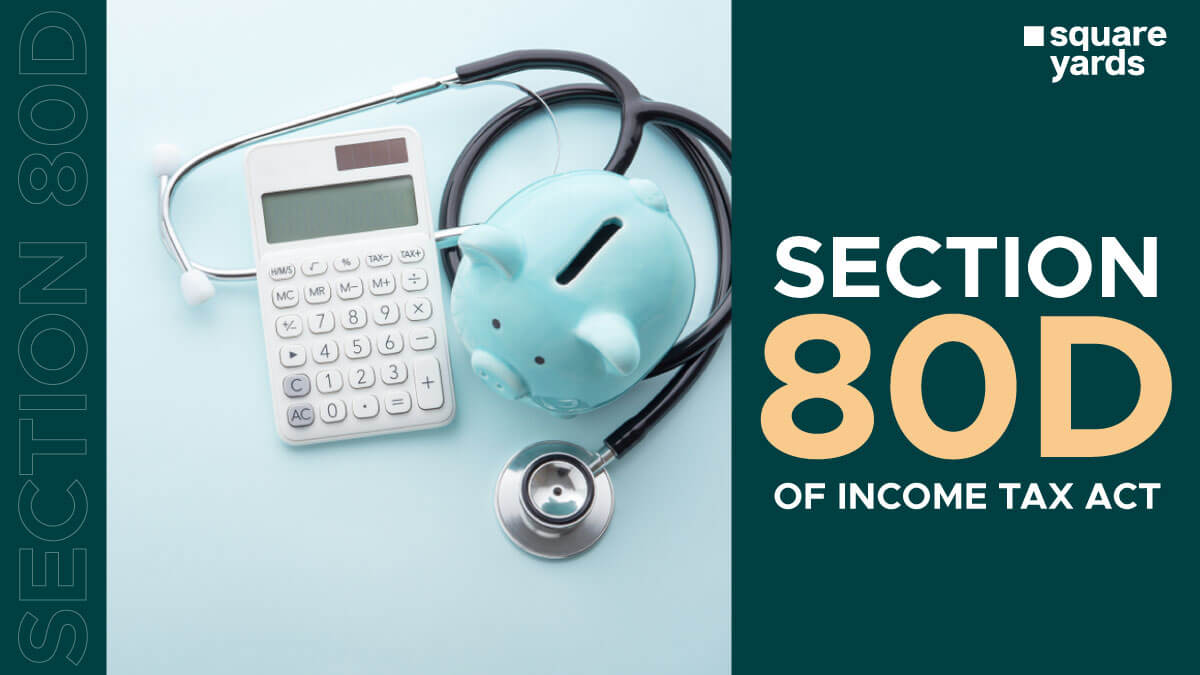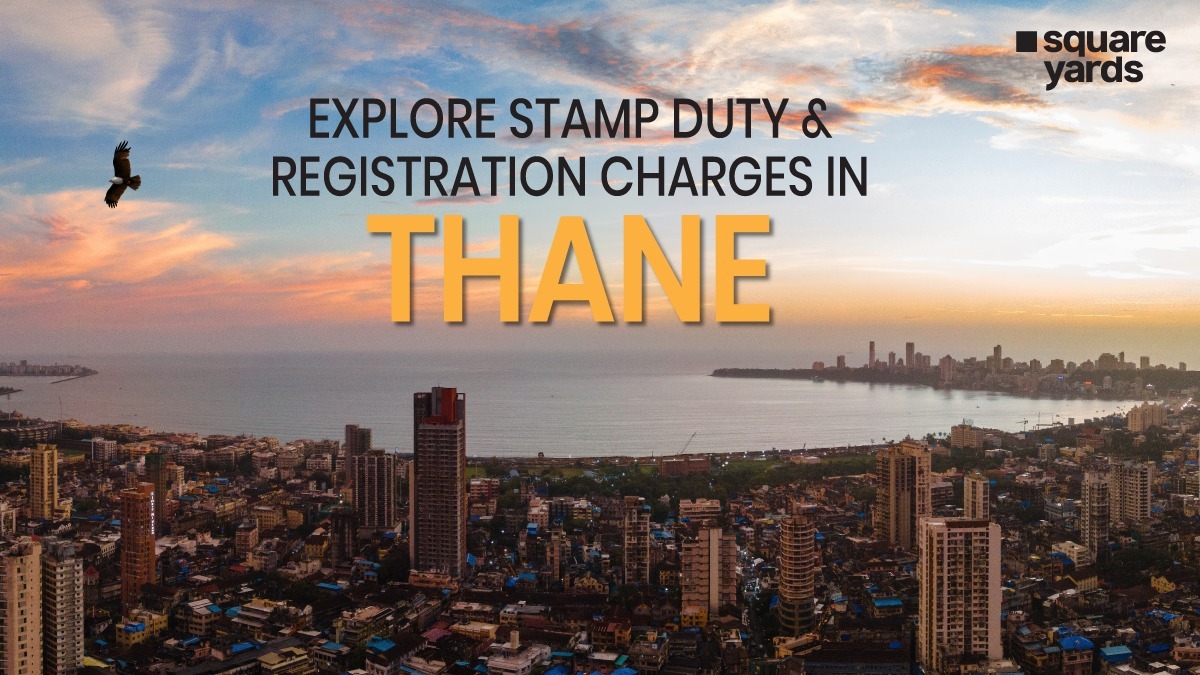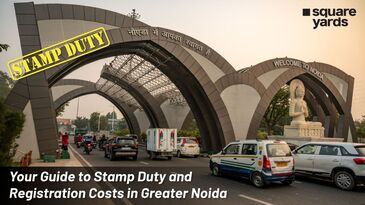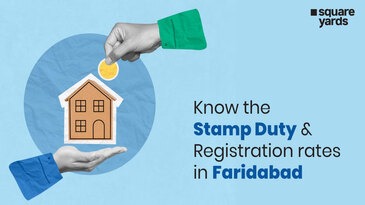Healthcare costs are soaring, and the recent increase in the COVID-19 cases has added more fuel to it. Thus, having a good health insurance plan is an absolute necessity. And if you’re tensed about paying too much premium, we suggest taking advantage of Section 80Dof the Income Tax Act (ITA).
It allows you to avail of deductions on the money you spend on your health insurance and helps ensure better tax planning. Read more about this section, including its eligibility and deductions.
Table of contents
- What is Sec 80D of the Income Tax Act?
- Eligibility Criteria for Tax Deduction under Section 80D
- Investments under Section 80D
- Deduction under Sec 80D of Income Tax Act
- Deduction under Section 80d for Mediclaim
- Preventive Medical Checkups under Section 80D
- Section 80D of ITA – Maximum Limit
- Exclusions under Income Tax Act’s Section 80D
- Summing this Up
What is Sec 80D of the Income Tax Act?
Section 80D of Income Tax offers deductions on health insurance premiums individuals pay for themselves and their family members. It lets you claim tax deductions on medical insurance premiums that you pay for yourself and your family.
Eligibility Criteria for Tax Deduction under Section 80D
Taxpayers are eligible to claim tax deductions under Section 80D of Income Tax in the following cases:
- Unlike other sections under the Income Tax Act, Section 80D lets HUFs (Hindu Undivided Families) claim tax deductions.
- Any individual paying premium for medical insurance bought for them, their spouse, parents or kids.
- Those making premium payments for medical treatment or check-ups of their parents aged above 80 can avail of tax exemption. It is important to ensure that your parents don’t have their medical insurance in such cases.
Investments under Section 80D
You can claim your preventive health check-up expenses and medical insurance premium payments as deductions under Income Tax Act’s Section 80D. You may claim deductions against the medical insurance premium that you pay for your parents. The deduction limit depends on the age of the primary health insurance holder.
Not many know, but Sec 80D of the Income Tax Act also offers deductions against critical illness covers available with life insurance policies.
Deduction under Sec 80D of Income Tax Act
As discussed above, Section 80D of the Income Tax Act helps you receive tax deductions on health insurance premiums only. Here’s how these deductions work:
|
CATEGORY |
DEDUCTIONS | |
| Below 60 Years | More than 60 years | |
| Self, Spouse and Kids | ₹ 25,000 | ₹ 50,000 |
| Parents | ₹ 25,000 | ₹ 50,000 |
| Maximum Deduction | ₹ 50,000 | ₹ 1,00,000 |
| Preventive Healthcare (Optional) | ₹ 5,000 | ₹ 5,000 |
Medical insurance is usually not available for people aged more than 80 years. Therefore, the deduction of up to ₹50,000 is possible only if the money is spent on their treatment and not on medical insurance.
One can claim a maximum deduction of ₹55,000 under Sec 80D of the Income Tax Act in the following cases:
- The individual’s family falls in the age bracket of 60 years or less (can avail a maximum deduction of ₹25,000).
- The individual has parents above 60 years (can avail of a maximum deduction of ₹50,000).
Preventive Healthcare (Optional): If the overall insurance you paid is less than the maximum limit, you can claim up to ₹5,000 for preventive health check-ups for your family.
Deduction under Section 80d for Mediclaim
A Mediclaim policy covers hospitalisation and other expenses, allowing you to claim a deduction under Section 80D of ITA.
- A person paying Mediclaim premium for self, spouse or kids can claim a deduction of up to ₹25,000.
- If the insured person is a senior citizen, the person paying the premium for the Mediclaim policy can claim a maximum deduction of ₹50,000.
NOTE: The previous limit set by the government was ₹30,000, but it was increased in the Union Budget of the year 2018.
- Individuals can claim up to ₹25,000 under Section 80D of the Income Tax Act when paying the Mediclaim premium for their parents’ medical insurance.
- If one or both the parents of the individual are insured and are senior citizens, the individual can then claim a deduction of up to ₹50,000.
- Mediclaim premium paid for any member of a Hindu Undivided Family can claim a deduction of up to ₹25,000. In case the insured member of the Hindu Undivided Family is a senior citizen, the deduction limit, in that case, is up to ₹50,000.
Preventive Medical Checkups under Section 80D
The Government of India announced the preventive health check-up deduction in FY 2013-2014. The aim was to encourage more citizens to be aware of their present health conditions and take preventive measures to maintain good health. Another major objective was to determine illness and mitigate risks at an early stage via regular check-ups.
Section 80D under ITA specifies a deduction of ₹5,000 against preventive medical check-ups. The maximum limit of this deduction is within the range of ₹25,000 -₹50,000, depending on the person’s case.
Either the individuals can claim this deduction themselves or on behalf of their spouse, parents or kids. They can make payments for the preventive medical check-up in cash.
Section 80D of ITA – Maximum Limit
While we have already specified the deductions under Section 80D above, learning the overall figure will help clarify things. Take a quick look at the table below.
| Category | Deduction Limit | Health Check-Up Deduction | Total |
| The Individual and family (spouse + kids) | ₹25,000 | ₹5,000 | ₹25,000 |
| The Individual, family and parents | ₹ (25,000 + 25,000) = ₹50,000 | ₹5,000 | ₹55,000 |
| The individual, family and parents (senior citizen) | ₹ (25,000 + 50,000) = ₹75,000 | ₹5,000 | ₹80,000 |
| The individual (senior citizen), family and parents (senior citizen) | ₹ (50,000 + 50,000) = ₹1,00,000 | ₹5,000 | ₹1,05,000 lakhs |
Let’s understand this with an example now.
Suppose you are 63 years old and pay an annual premium of ₹21,000 for yourself and those dependent on you. You also pay a medical premium of ₹27,000 for your parents’ policy who are within the age group of 80 or more. In a case like this, Sec 80D of the Income Tax Act states that you are eligible for:
- A deduction of ₹21,000 as you pay this amount as a premium for yourself and those dependent on you.
- A deduction of ₹27,000 as you pay a premium for your parents.
- You can claim an overall tax deduction of ₹48,000 from the total premium payment of ₹48,000.
NOTE: Don’t forget that the maximum tax deduction limit is subject to change under Section 80D of the Income Tax Act.
Exclusions under Income Tax Act’s Section 80D
Yes, one cannot claim deductions under Section 80D Income Tax if
- Medical insurance premium payment is made via cash. (Note: Preventive medical check-up payments can be made by cash).
- Payment is made on behalf of non-dependent kids, grandparents, siblings or other relatives.
- The individual is a part of a group health insurance made by an organisation.
Summing this Up
Section 80D of the Income Tax Act offers great relief to taxpayers given the current taxation regime. But if you wish to get in-depth details of the same, get in touch with an expert. A tax professional will have the knowledge and experience to guide you better. You may also refer to the FAQ section below in case of questions or concerns.
You May Also Read:
Frequently Asked Questions
Can a Hindu Undivided Family claim tax exemptions under Section 80D Income Tax?
Yes, Section 80D of the Income Tax Act,1961 allows even Hindu Undivided Families (HUFs) to claim tax deductions.
How is Section 80D different from Section 80C Income Tax?
While Section 80D and Section 80C are a part of ITA, they’re different. Section 80C has an upper limit of ₹1.5 lakh for tax deductions, and Section 80D offers deductions on medical insurance up to a specific limit.
What is the deduction limit under Section 80D of the Income Tax Act, 1961?
The maximum deduction on policies taken for you and your family is ₹25,000. However, if you are a senior citizen (60 years or more), the maximum deduction limit is ₹50,000.
Can NRIs claim tax deductions under Section 80D of Income Tax?
Yes, even an NRI (Non-resident Indian) can avail of tax deductions under Section 80D of the Income Tax Act.
Does an individual have to submit any document or proof to claim deductions under Section 80D Income Tax?
No, one does not have to submit any proof or documents to avail deduction under Sec 80D of the Income Tax Act.
Are there any income range criteria to qualify for deductions under Section 80D Income Tax?
No, Section 80D of ITA does not specify any income-related criteria for taxpayers.
If I pay the medical insurance premium on behalf of my working child, can I claim deductions under Section 80D?
No, you cannot claim any deduction under Section 80D Income Tax.
If I pay the health insurance premium of both my parents, can I claim deductions under Section 80D ITA?
Yes, you can claim deductions if you pay the health insurance premium of both your parents.













































